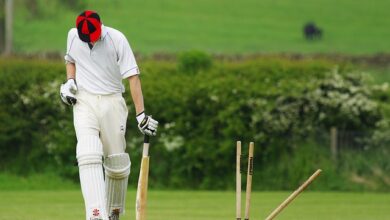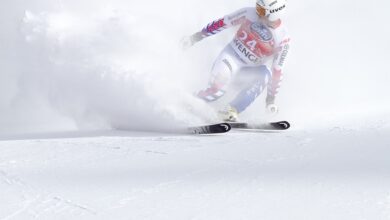How Can One Take Care Of A Horse After Endurance Riding?

Endurance riding, a sport that tests the limits of both horse and rider, is a thrilling experience that evokes a sense of freedom and adventure. As the horse gallops across vast landscapes, its powerful muscles flexing with each stride, it embodies a spirit of untamed beauty. However, as exhilarating as this ride may be, it is crucial to remember that caring for the horse after endurance riding is just as important as the ride itself.
In order to ensure the well-being and longevity of these magnificent creatures, proper post-ride care must be implemented. After completing an endurance ride, one must prioritize rest and recovery for their equine companion. The horse’s body undergoes immense physical stress during the long hours on the trail, requiring adequate time to recuperate. Providing a comfortable and quiet environment for the horse to unwind is essential in aiding its recovery process. Additionally, allowing ample time for rest helps prevent any potential injuries or strains from worsening. By offering this necessary respite, riders can ensure that their horses regain their strength before embarking on future adventures together.
Rehydration is another crucial aspect of caring for a horse after an endurance ride. During these intense rides, horses lose significant amounts of fluids through sweat. Therefore, it is vital to replenish their water levels promptly and effectively. Offering clean and fresh water at regular intervals encourages proper hydration and aids in preventing dehydration-related issues such as fatigue or muscle cramps. Furthermore, providing electrolyte supplements can help restore essential minerals lost during strenuous exercise. By prioritizing rehydration techniques post-ride, riders contribute to their horses’ overall well-being while promoting optimal performance in future endeavors.
As guardians of these magnificent animals who carry us through exhilarating journeys into nature’s embrace, we bear the responsibility to ensure they receive proper care even after moments of liberation on endless trails. Rest and recovery alongside effective rehydration techniques are fundamental pillars in safeguarding our equine partners’ health and longevity. By prioritizing their well-being, we honor the essence of freedom that is inherent in these enchanting creatures, allowing them to continue gracing us with their unparalleled grace and strength.
Rest and Recovery
Rest and recovery are crucial for ensuring the well-being and long-term health of a horse after an endurance ride.
After intense physical exertion, horses require time to rest and recuperate in order to repair any muscle damage and restore their energy levels.
One important aspect of post-ride care is providing the horse with appropriate nutritional supplementation. This may include feeding them electrolytes and essential minerals to replenish what was lost during the ride, as well as providing high-quality forage and balanced meals to support their overall health.
Additionally, stretching exercises can be beneficial in helping the horse recover from the strenuous activity. These exercises help relieve tension in the muscles, improve flexibility, and promote blood circulation, all of which aid in preventing potential injuries or stiffness.
By incorporating rest periods along with proper nutritional supplementation and stretching exercises into a horse’s post-endurance ride routine, owners can ensure that their horses have a smooth recovery process while maintaining their long-term health.
Rehydration
Replenishing lost fluids is crucial for the equine athlete after a grueling endurance race, like a parched desert oasis providing relief to a weary traveler.
Rehydration is essential to restore the horse’s fluid and electrolyte balance, which can be significantly depleted during prolonged exercise.
Water should be offered immediately after the ride, allowing the horse to drink freely and satisfy its thirst.
Additionally, electrolyte supplementation may be necessary to replace the minerals lost through sweat.
Electrolytes such as sodium, potassium, chloride, calcium, and magnesium play vital roles in maintaining proper hydration and muscle function.
It is important to consult with a veterinarian or equine nutritionist to determine the appropriate electrolyte supplement dosage based on individual horse needs and workload intensity.
Read also: What Is The History Of Dressage?
By ensuring proper rehydration through ample water intake and electrolyte supplementation when needed, horse owners can promote optimal recovery and well-being for their equine companions after endurance riding events.
Post-Ride Care
Following the completion of an arduous endurance race, attending to the equine athlete’s needs becomes crucial in ensuring their post-ride recovery and well-being.
Proper hoof care is essential during this time, as the intense physical exertion can take a toll on the horse’s hooves.
Inspecting for any signs of damage or lameness and addressing them promptly can prevent further complications.
Additionally, providing muscle relaxation techniques such as gentle stretching exercises or massage therapy can aid in reducing stiffness and promoting faster recovery.
These techniques help to improve blood circulation, decrease inflammation, and alleviate muscle soreness.
Lastly, offering a comfortable resting area with clean bedding allows the horse to relax and rejuvenate after the demanding endurance ride.
By prioritizing hoof care and muscle relaxation techniques in post-ride care, horse owners can ensure their equine partners recover effectively while maintaining their overall well-being.
Frequently Asked Questions
What are some common signs of fatigue or overexertion in a horse after endurance riding?
Common signs of fatigue or overexertion in a horse after endurance riding include heavy breathing, increased heart rate, excessive sweating, muscle stiffness or cramping, and reduced appetite. It is crucial to address these symptoms promptly to prevent complications such as dehydration. Implementing cool down exercises aids in reducing the horse’s body temperature and promoting muscle recovery.
How long should a horse rest after completing an endurance ride?
After completing an endurance ride, it is crucial to allow a horse sufficient rest. The duration of this rest period depends on various factors, such as the intensity of the ride and the individual horse’s conditioning level.
Are there any specific dietary considerations for a horse during the rest and recovery period after endurance riding?
During the rest and recovery period after endurance riding, horse nutrition plays a crucial role. It is essential to provide the horse with a well-balanced diet that includes adequate amounts of carbohydrates, proteins, fats, vitamins, minerals, and water to support their post-ride recovery.
What are some recommended exercises or activities to help a horse maintain its fitness level during the rest period?
To maintain a horse’s fitness level during the rest period after endurance riding, recommended exercises and activities include lunging, longeing, hill work, and controlled hand-walking. These engaging activities provide physical stimulation and foster a sense of freedom for the horse.
Are there any specific grooming or maintenance practices that should be followed after an endurance ride to prevent injuries or soreness?
To prevent injuries or soreness after an endurance ride, it is recommended to incorporate horse massage and stretching techniques. These practices can help relax and loosen the muscles, improve circulation, and promote recovery in the horse’s body.
Conclusion
In conclusion, taking care of a horse after endurance riding is crucial for its well-being and future performance. Rest and recovery are essential to allow the horse’s body to recuperate from the physical exertion it has endured during the ride. This can be achieved by providing a quiet and comfortable environment, ensuring adequate time for rest, and monitoring any signs of fatigue or discomfort.
Additionally, rehydration is paramount in replenishing the horse’s fluid levels after an endurance ride. Offering clean water frequently and encouraging the horse to drink will help restore its hydration status. Electrolyte supplementation may also be necessary to replace lost minerals and maintain proper bodily functions.
Furthermore, post-ride care involves observing the horse for any signs of injury or illness. Regular grooming sessions will not only keep the horse clean but also provide an opportunity to inspect its body for any wounds or soreness that may have occurred during the ride. Prompt veterinary attention should be sought if any issues are detected.
To conclude, tending to a horse’s needs after endurance riding requires diligence and expertise. Just as a skilled gardener tends to their plants with care, so must we tend to our horses with precision and attentiveness. By providing rest, rehydration, and post-ride care, we can ensure that our equine companions recover fully from their efforts and remain in optimal health for future endeavors on the trails of life.



